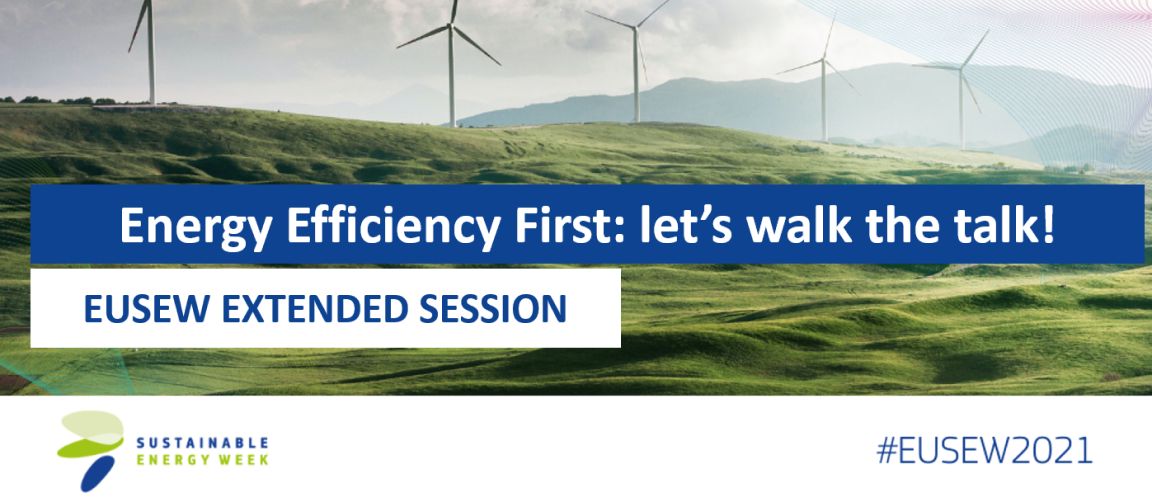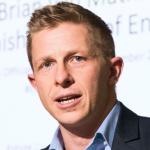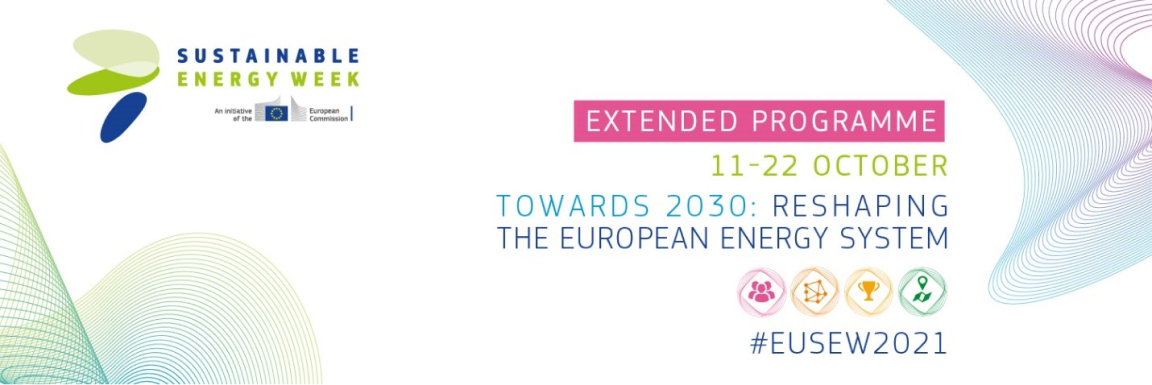
05 Oct Meet the speakers of “Energy Efficiency First: let’s walk the talk!” EUSEW extended session
Meet the speakers on an online event as part of the extended programme of EUSEW 2021, EU Sustainable Energy Week, on Thursday 21 October 2021; 09.00 to 10.30 am CEST.
This session in joint organization of the three Horizon 2020 projects ENEFIRST, EERAdata and sEEnergies.

A view from the field: Copenhagen’s experience with energy planning and comparing energy efficiency and supply-side investments, by Anders Christian Lyngtorp
Anders Christian Lyngtorp is Head of the Technical Department in City of Copenhagen Properties, Facility Management & Procurement. He holds a degree as MSc in Technical and Environmental Planning and has worked for the City of Copenhagen since 2014, where he has been behind the implementation of energy surveillance and energy efficiency efforts, leading to the C40 award in the category “Cities4Energy”, and the BMS strategy which have made it possible to start the testing of flexible use of energy in assets, as a part of the city’s climate action plan. Prior to that he was the head of the technical department in one of the big private property managers in Copenhagen and was a strategic advisor in Corporate Social Responsibility for Denmark´s public utility company. In addition, Anders has been active in an environmental NGO organisation in Denmark, working with environmental matters.

Implementing E1st at local level: The EERAdata Decision support tool and its assessment modules and databases, by Sebastian Botzler (Technical University of Munich and EERAdata Project)
This presentation will first briefly explain the key messages and outputs from the EERAdata project. Then it will illustrate the application of the EERAdata Decision Support Tool with the example of the building stock in Copenhagen and Andalusia, showing the different assessment methods in Indoor Climate, Socio-economic, Life-cycle and Supply side assessment and the related data management processes.
Sebastian Botzler is project manager and researcher at the Technical University Munich. In the last 7 years he was focusing on the socio-economic and ecological effects of building energy efficiency and its effects on occupant behaviour. He was working on a wide range of sustainability topics with multiple municipalities and regions in Europe and worldwide. Previously he worked as sustainability consultant for green buildings and municipal energy efficiency concepts. He is currently finalising his PhD and is coordinating the EERAdata project.

Improving the assessment of energy efficiency potentials: spatial analyses of energy efficiency potentials in industry, transport and mobility, and mapping in a GIS visualization platform, by Pr. Brian Vad Mathiesen
This presentation focuses on the results and methods for the comprehensive assessment of the energy efficiency first principle in sEEnergies – going across sectors and EU countries. sEEnergies quantifies and operationalizes the potentials for energy efficiency in buildings, transport, and industry.
Brian Vad Mathiesen, Professor in Energy Planning and Renewable Energy Systems at Aalborg University, holds a PhD in fuel cells and electrolysers in future energy systems (2008). His research focuses on technological and socio-economic transitions to renewables, energy storage, large-scale renewable energy integration and the design of 100% renewable energy systems. He is one of the leading researchers behind the concepts of Smart Energy Systems and electro fuels. He is on the Clarivate, Web of Science Highly Cited list (2015-2020), thus among the top 1% most cited researchers globally. Among other positions, he is member of the EU Commission expert group on electricity interconnection targets in the EU and the newly founded Science Advice for Policy by European Academies (SAPEA) Expert Group on A Systemic Approach for the Energy Transition in Europe. He is the Research Coordinator of the Sustainable Energy Planning Research group, Principal Investigator (PI) of the RE-INVEST and sEEnergies projects, and Programme Director for the MSc in Sustainable Cities. He has been project leader, work package leader and participant in more than 60 research projects as well as editorial board member of The Journal of Energy Storage (Elsevier) and The Journal of Sustainable Development of Energy, Water & Environment Systems; Associate Editor of Energy, Ecology and Environment (Springer) and Editor of the International Journal of Sustainable Energy Planning and Management. Recently he started the new Elsevier Journal Smart Energy. Brian is also a member of The Danish Academy of Technical Sciences (ATV) and a board member at The Danish Energy Technology Development and Demonstration Program (EUDP).

How to design policies for the implementation of Energy Efficiency First in the building sector, by Senta Schmatzberger (BPIE and ENEFIRST project)
This presentation will first briefly highlight key results from the Enefirst project, illustrated with examples such as the Fabric First approach implemented in Ireland, and present EU level policy guidelines for implementing E1st in buildings and the wider energy system. Then it will discuss initial findings on the national policy landscapes in Germany, Hungary and Spain, how E1st is being implemented and what are the main barriers.
Senta Schmatzberger is project manager at BPIE (Buildings Performance Institute for Europe) since 2019 with over 10 years of experience working on the energy transition. She focuses her work on energy efficiency policies in buildings with a strong link to social policy and multiple benefits and currently leads the work on policy application and recommendations in the ENEFIRST project. In the past she worked for a diverse range of organizations and topics ranging from renewable energy at the German Agency for Renewable Resources (FNR) to climate change with the UNFCCC secretariat.

Dr. Jean-Sébastien Broc is a researcher at IEECP (Institute for a European Energy & Climate Policy). He has been doing research and studies on the review, monitoring and evaluation of energy savings and energy efficiency programmes and policies for more than 15 years. He is currently the coordinator of the Horizon 2020 ENEFIRST project (about making the energy efficiency first principle operational).
He is a board member of the Energy Evaluation association, a reviewer for several scientific journals and was co-panel leader for the monitoring & evaluation panel at the ECEEE Summer Study in 2009 and 2015. He has published more than 20 papers in scientific journals or peer-reviewed proceedings of international conferences. Jean-Sébastien holds an energy engineering degree from INSA Lyon (2003) and a PhD in energy engineering from Mines ParisTech (2006).
Jean-Sébastien will moderate this event.


